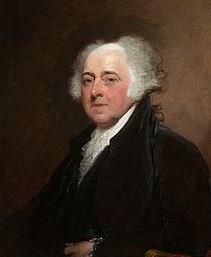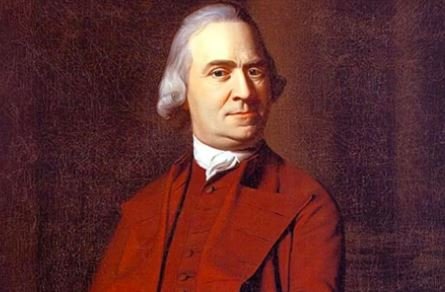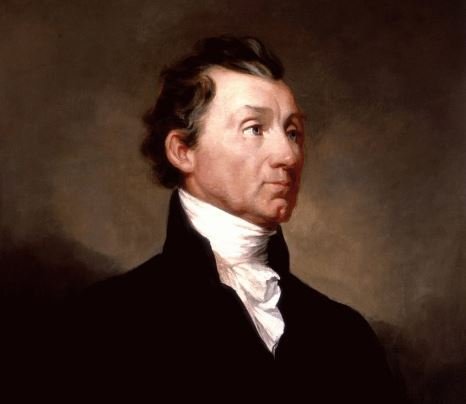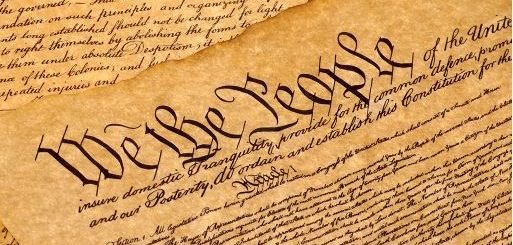Top 10 Founding Fathers of the United States of America

Founding Fathers of the United States
The Founding Fathers of the USA were the outstanding American politicians, military commanders, writers, rebels, lawyers, businessmen, as well as the numerous patriots who played key roles during the American Revolutionary War. These courageous men and women were the brains behind American Independence in 1776 – a monumental feat of achievement that saw 13 American colonies break away from the colonial bondage and oppression of Great Britain. The United States of America wouldn’t have existed had it not been for altruistic works of these Founding Founders who wrote down the basic laws that still govern America.
List of Founding Fathers of the United States
There is no fixed way of listing who constitutes an American Founding Father, this is because there were many fighters involved in the independence struggles. As a result of that, the list appears truncated or elongated. It must be noted that the 56 signatories of the Declaration of Independence are sometimes considered to be part of the Founding Fathers.
Also, two broader groups of Founding Fathers capture the signers of Articles of Confederation (the initial version of the American Constitution which was adopted in 1777 and ratified in 1781) and the signers of the Continental Association (created on October 20, 1774).
Inasmuch as the list varies, our list of American Founding Fathers shall focus on the popular and key political figures whose contributions were so invaluable. They were prominent politicians such as George Washington, Thomas Jefferson, John Adams, Alexander Hamilton, Benjamin Franklin, John Marshall, Samuel Adams, James Madison, and the like.
GEORGE WASHINGTON

Founding Father General George Washington (1732 – 1799)
Washington was a successful Virginian farmer and slave master with hundreds of servants. He developed a strong resentment towards the intolerable taxation schemes Britain imposed on the American colonies.
As if he had been waiting impatiently for it to happen, Washington responded swiftly to duty when the Revolutionary War sparked in 1775. He was appointed by the Continental Congress to command the Continental Army, which more or less acted as the security body of the Americans.
Washington’s Army, as it was sometimes called, had a fair share of defeats and disappointment, but the commander never backed down. Even though he lost on several occasions on the battlefield, he fought on with all his might through unfavorable winter weathers at the Valley Forge.
With assistance from French forces, General Washington and his army were able to fight off the British. By 1783, the American colonies had successfully liberated themselves from the clutches of their colonial masters.
After the war, Washington tried to retire to his farm, but the loving and appreciative Americans convinced him to stay in politics. In 1789, Americans massively endorsed Washington as the 1st President of the USA. Many historians regard him as the greatest founding figure in America.
Read More: 5 Major Events that Led to the American Revolution
ALEXANDER HAMILTON

Founding Father Alexander Hamilton (c. 1755 – 1804)
Rising from a poverty-stricken family background, Alexander Hamilton became a colossal politician in New York. After his emigration to the US from British West Indies, Hamilton would go on to feature heavily during the days of the American Revolution. As a junior officer, he had the opportunity to fight side-by-side with Gen. George Washington.
A staunch Federalist, Hamilton always believed in a centrally structured American government, that is, federal rights over state rights. His defining moment came when he was part of the 1787 Constitutional Convention. Hamilton authored a good number of the Federalist Papers, calling for the Constitution to be ratified.
Hamilton’s exploits and commitment to the new nation did not go unnoticed. In 1789, President George Washington tapped into Hamilton’s wisdom by selecting him to man the affairs of the U.S. Treasury. His appointment meant that he was the first American to occupy that position.
During his time as secretary of the treasury, he used his office to initiate the establishment of a national bank. Despite his selfless service to the United States, Hamilton’s life ended tragically in 1804 when he had a gun duel with his fiercest political opponent, Aaron Burr.
BENJAMIN FRANKLIN

Founding Father Benjamin Franklin was also a serial inventor
Benjamin Franklin was a renowned writer, inventor, a scientific guru, and a gifted diplomat. Despite attaining inadequate formal education, Benjamin couldn’t be stopped from making an impact on his home state of Philadelphia and the USA at large.
In the scientific community, Franklin is renowned for several scientific ideas that include the bifocals, harnessing electrical energy and music (the glass harmonica).
Franklin’s patriotism knew no boundary. He took a lot of interest in civic affairs and often contributed his quota in the advancement of liberty in every possible way.
During the early phase of the Revolution, Franklin constituted the Committee of Five who produced a draft of the Declaration of Independence. The other four members of the committee comprised Founding Fathers: Thomas Jefferson -Virginia delegate; Roger Sherman- Connecticut delegate; John Adams – Massachusetts delegate; and Robert R. Livingston-New York delegate.
As the Revolution raged on, Franklin was dispatched to several European countries to lobby for political and economic assistance in the Revolution. In 1783, he played roles in the negotiation of the Treaty of Paris that put an end to the war. Before passing away on April 17, 1790, he served in the 1787 Constitutional Convention held in Philadelphia.
JOHN ADAMS

Founding Father John Adams became the second President of the U.S.
John Adams was a Massachusetts-born American patriot who had his law degree from Harvard. Adams’ name featured prominently in the First and Second Continental Congresses. He was part of the Declaration of Independence drafting committee (the Committee of Five), whose works provided the conditions necessary for the adoption of the sacred document.
John Adams partook in the negotiation of the Treaty of Paris of 1783. The treaty brought hostilities between Great Britain and the U.S. to a halt. As a learned political philosopher, Adams was a visionary who became President George Washington’s vice for two consecutive terms, from 1789 to 1797. John Adams holds the honor of being the first vice president of the U.S.
His political career grew further when he succeeded George Washington to became America’s second president from 1797 to 1801. Adams’ presidency came at a time when Britain and France were warring with each other. His tenure was also marred by several political infighting between Federalists and Anti-Federalists. This left the United States in a bit of difficulty, both at home and abroad.
JAMES MADISON

America’s 4th President- Founding Father James Madison
James Madison was born in Virginia in 1751. He graduated from Princeton University where he studied science, philosophy, and classical Greek. In 1772, Madison found himself in the circles of the American Revolution.
In December 1774, Orange County had Madison on its Committee of Safety. A year later, he entered the Virginian militia. Gradually he rose to the rank of a Colonel.
Endowed with writing skills, the learned man utilized his abilities at the Virginia Convention in 1776; he represented the Orange County. It was around this time that he and Thomas Jefferson (another Founding Father) developed a close working relationship with each other. The two heroes contributed in various ways in laying the pillars of American democracy.
As a prolific writer, Madison worked with George Mason to draft the Virginian Constitution when he was appointed to the constitutional committee. He is most famous for drafting the First 10 Amendments to the U.S. Constitution during the Philadelphia Constitutional Convention of 1789.
As a result of his tireless work, as well as his expertise on the Constitution, Madison is seen as the “Father of the American Constitution”.
In 1801, after earlier enjoying a political career as a Congressman, Madison hopped into the administration of President Thomas Jefferson and worked as secretary of state. When he eventually ran for the US presidency in 1808, he secured a landslide victory, becoming the fourth president of the United States in 1809.
THOMAS JEFFERSON

Thomas Jefferson was the 3rd President of the United States
Born on his father’s farm in central Virginia, on April 13, 1743, Thomas Jefferson personally inscribed his achievements in an epitaph. After studying at the William and Mary College, Jefferson delved into law for five years. By 1767, he had gotten his very first law case.
His contribution to colonial politics started in 1774 when he drafted the directions meant for Virginia delegates to the First Continental Congress. As the chosen one from Virginia, Jefferson assisted his fellow Founding Fathers to lay down building blocks for the new American government that was fast emerging.
The Second Continental Congress saw Jefferson take lead roles in drafting the Declaration of Independence. He put down the opinions and arguments of the colonies into paper and explained why the colonies had grown above colonialism, and by that, they declared themselves independent in July 1776. The document also detailed the equal and inherent rights of the citizens, irrespective of social classes.
After leaving Congress in 1776, Jefferson went back to serve in the Virginian legislature. Between 1779 and 1781, he was the governor of his state. Still determined to serve the new nation, Jefferson accepted to the position of U.S. Secretary of State (the first of our nation) in George Washington’s administration.
Jefferson went on to become vice president (from 1797 to 1801) and then President of the USA after beating John Adams in a tough presidential race. His time in office lasted for two consecutive terms, from 1801 to 1809.
JOHN MARSHALL

Founding Father John Marshall (1755-1835)
Born in 1775, in Germantown, Virginia, John Marshall served in the American Revolution as a lieutenant and later a captain in the Continental Army. He and his troops showed steel of coverage as the were battered down during the winter months of 1777-79 in the Valley of Forge. In 1781, Marshall released himself from military duties and went to study law. He later set up law firms in Virginia.
The legal prowess of John Marshall was exhibited in 1786 when he achieved victory in a prominent legal battle. The Virginia-born lawyer also presided over the Virginian bar and doubled as Virginia Assembly member.
Founding Father Marshall played vital roles in several Virginia State conventions, as well as the Philadelphia Constitutional Convention in 1787. And during France’s war with Britain, John Adams appointed Marshall to negotiate with France, following the seizure of American vessels.
Marshall briefly served as US Secretary of state (1800 to 1801) in John Adams’ government and was later appointed to lead the Supreme Court as a Chief Justice in 1801. John Marshall carried out his duties diligently in the U.S. Supreme Court for more than 3 decades.
SAMUEL ADAMS

Founding Father Samuel Adams (1722 – 1803)
Samuel Adams was a cousin to John Adams. Born in 1722 in Boston, Massachusetts, Samuel Adams grew up in a merchant family. Growing up in a family that valued and practiced Congregational and Puritan religious faiths, Samuel’s parents would have preferred their son to be a clergyman instead of a politician.
Graduating from Harvard University, Samuel Adams realized his passion lied in politics and civil service, so he stuck to it and became deeply involved in the American Revolution. In Boston, Samuel and others founded a political newspaper called the “Independent Advertiser”.
He took many odd jobs (including one as a tax collector) and quite frankly failed miserably at them. As he gained prominence in local politics, Samuel began to vent his anger at the unfavorable tax policies (the Coercive Acts) imposed on the colonies by Great Britain. He was a known critic of Stamp Act, Sugar Act, Boston Massacre and countless injustices.
As co-founder of the revolutionary group Sons of Liberty, Samuel Adams masterminded the Boston Tea Party demonstration. He was part of the First and Second Continental Congresses, and he also penned his signature on the Declaration of Independence.
JOHN JAY

Founding Father John Jay (1745-1829)
Born in 1745, John Jay was a great New Yorker. He is remembered as a patriot, politician, diplomat, and above all, a Founding Father of the USA. Jay occupied various positions of service after the birth of the much-desired United States of America.
In 1783, Jay proudly partook in negotiations that led to the signing of the Treaty of Paris which ended the American Revolutionary Wars. He also went down into recorded history as the first Chief Justice of the United States Supreme Court (1789 to 1795). After his departure from the court, Jay went back to his home state New York and served as the state’s second governor.
After seeing to it that the US Constitution was drafted and ratified, Founding Father John Jay sat on foreign matters of the US. In 1796 & 1800, his bid for the presidential office ended in defeats at the polls.
As New York governor, Jay did the right thing when he signed a 1799 bill, banning slavery in that state. At long last, Jay (a slave master himself) came to his moral senses and outlawed human enslavement. Judging from John Jay’s long list of political achievements, there is no doubt as to why his name makes the list of the most prominent Founding Founders of the United States.
Read More: 10 Major Accomplishments of John Jay
JAMES MONROE

Fifth President of the United States, James Monroe (1758 – 1831)
Born in 1758, in Westmoreland County of Virginia, James Monroe was a Founding Father and an ex-president of the United States. He entered into the public domain and gained popularity for his foreign affairs policies which became known as the Monroe Doctrine.
Prior to rising to the highest office (the presidency), James Monroe had spent quite a lot of years in public service at home and in abroad. Monroe studied law under the guidance of Thomas Jefferson and went on to have a very distinguished law career.
Monroe’s fellow founders and colleagues admired his sense of judgment, honesty, and kindness. Aside from being the 5th US President, James Monroe’s name was used in naming Liberia’s capital, Monrovia. His link to the small West African country was as a result of his commitment to freeing slaves and repatriating them to their homelands. Liberia, a nation founded by freed slaves from America, certainly owes a lot to James Monroe.
Read More: History and Major Facts about the Liberty Tree
Other notable Founding Fathers of the USA
It’s important to state that, other visionaries collaborated to found the United States, apart from the above names. The US pays homage to the works of John Hancock (and his big signature, pun intended), Patrick Henry, Paul Revere, Gouverneur Morris, Thomas Paine, George Mason, and Charles Carroll, and many more heroes of the American Revolution.
FACT CHECK: At worldhistoryedu.com, we strive for utmost accuracy and objectivity. But if you come across something that doesn’t look right, don’t hesitate to leave a comment below.



























